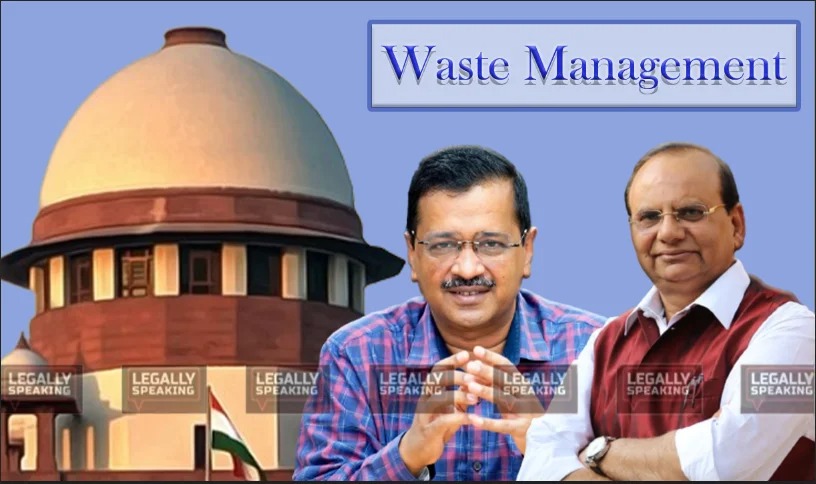
The Delhi Government recently moved the Supreme Court challenging the decision of the National Green Tribunal (NGT) to designate the Lt. Governor as the head of a high-level committee responsible for overseeing solid waste management in Delhi.
Advocate Shadan Farasat filed the appeal on behalf of the Delhi Government under Section 22 of the NGT Act, asserting that the appointment of the Lt. Governor as the head of the high-level committee, as stated in the February order is unconstitutional.
“The executive power for matters relating to local governance lies exclusively with the State Government (GNCTD) under the Constitution, except to the extent limited by an express Parliamentary law,” the plea stated.
Emphasizing the constitutional framework, the appeal highlighted that the responsibility for “Public health, sanitation, and Solid Waste Management” is enshrined under Entry 6 of Schedule 12 of the Constitution. Accordingly, the power to address these issues lies with the local government, specifically the municipal corporations in Delhi.
Furthermore, it argued that the functioning of the Municipal Corporation falls under Entry 5 of the State list, which is not an excepted subject. As a result, it is “within the executive domain of the elected government of Delhi.”
Citing Article 239AA of the Constitution, the Delhi Government contended that the Lt. Governor is a mere figurehead, with limited powers restricted to areas such as police, order, and land, as designated by the Constitution.
In support of its position, the appeal referred to the case of State (NCT of Delhi) v. Union of India (2018) 8 SCC 501, wherein the Supreme Court concluded that the elected government of the National Capital Territory of Delhi possesses exclusive executive powers over all subjects in the State and Concurrent List, excluding the three excepted subjects of ‘public order,’ ‘police,’ and ‘land.’
Importantly, the plea pointed out that the remedial measures for solid waste management do not fall under the excepted heads. It argued that the suggestions made by the NGT, such as establishing new waste processing facilities, enhancing existing facilities, and addressing legacy waste sites, all require budgetary allocations authorized by the Delhi Government. Therefore, the involvement of the elected government becomes crucial in this matter.
The plea further contended that the decision of the NGT is a clear violation of the federal principles governing the National Capital Territory (NCT) of Delhi, as it encroaches upon the Delhi government’s authority to allocate finances.
Notably, the Delhi Government has recently challenged another NGT order in the case of Ashwani Yadav vs. Govt. of NCT of Delhi. In this case, the Tribunal had appointed the LG as the head of the high-level committee responsible for overseeing the cleanliness of the Yamuna River.




